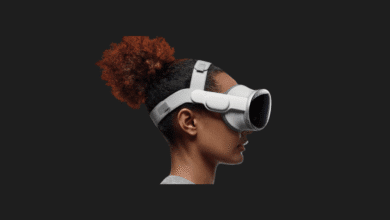Metaverse Security Risks

Forbes estimates that spending on AR/VR will reach $72.8 billion in 2024, driven by the growing popularity of the Metaverse.
As leaders in various industries, including gaming, healthcare, and crypto, explore new opportunities in the Metaverse, there is a potential oversight—security risks.
The Metaverse, being in its early stages, is vulnerable to exploitation by cybercriminals. This article will examine the top three security risks in the Metaverse and explore potential mitigation strategies.
What is Metaverse?

Let’s start with a brief definition: The Metaverse is a shared, virtual space where individuals can meet, interact, and conduct business. It resembles the internet but is composed of 3D virtual worlds instead of websites.
Think of it like Second Life or GTA Online, where you have complete control. The term was initially coined by science fiction writer Neal Stephenson in his 1992 novel Snow Crash and has gained popularity in recent years, notably with figures like Mark Zuckerberg and Oculus founder Palmer Luckey. Now that we’ve covered the basics, let’s explore why security is crucial in the Metaverse.
Why Is Security So Important In The Metaverse?

As the Metaverse gains popularity, an increasing amount of sensitive data will be shared in virtual environments. This data may range from personal records and financial information to trade secrets and government secrets. Consequently, ensuring the security of the Metaverse is crucial. Otherwise, we risk creating a new avenue for cybercrime.
Top Cybersecurity Risks in Metaverse

Now that we understand why security is important, let’s delve into the top three cybersecurity risks in the Metaverse.
- Spyware: The first security risk involves invisible eavesdropping with potentially dire consequences. In the physical world, it’s relatively easy to tell if you’re being spied on, with visible cameras or someone hiding nearby. However, in the Metaverse, it becomes much harder to detect such surveillance. Researchers from the University of Washington highlight that the immersive nature of AR and VR technology creates opportunities for competing applications to secretly record and replay a user’s every move without their knowledge. This type of spyware can be exploited for various malicious purposes, including identity theft and corporate espionage.
- KYC (Know Your Customer) Thieves: Identity theft is a significant problem in the physical world, and as we move to the Metaverse, this issue is likely to escalate. The Metaverse will be built upon existing social media platforms that already struggle to protect users’ data. Past incidents, such as the 2018 Facebook data breach affecting over 50 million users, suggest that similar violations could occur in the virtual world as social media companies become increasingly involved in Metaverse projects. KYC thieves might exploit vulnerabilities in these platforms to steal sensitive user information.
- Data Privacy: As the Metaverse expands, the volume of data shared in virtual environments will also increase. Ensuring data privacy becomes a significant challenge, given the difficulties that companies like Facebook and Google have faced in protecting user data. Hackers, who have increasingly used IoT devices to launch attacks and steal data, could leverage AR-VR devices for identifying and tracking individuals. These devices will collect extensive user data, including biometric information, raising concerns about the protection of personal data in the Metaverse.
What Can Be Done to Improve Security in Metaverse?

Firstly, we must raise awareness about the critical importance of security in the Metaverse. Secondly, there is a pressing need to establish improved security protocols and policies. Thirdly, it is essential to ensure that these security measures are not only in place but also enforceable.











